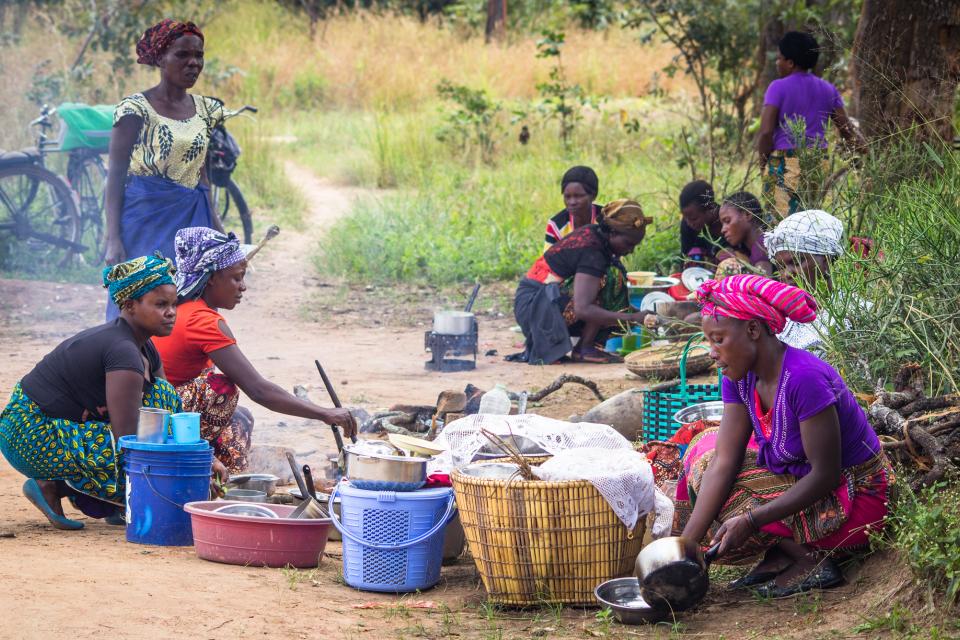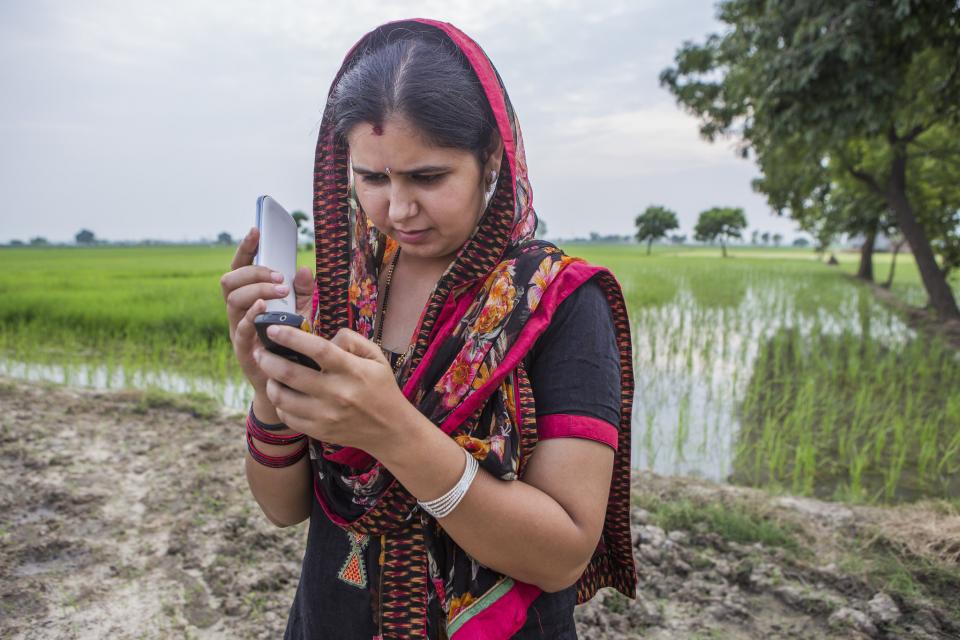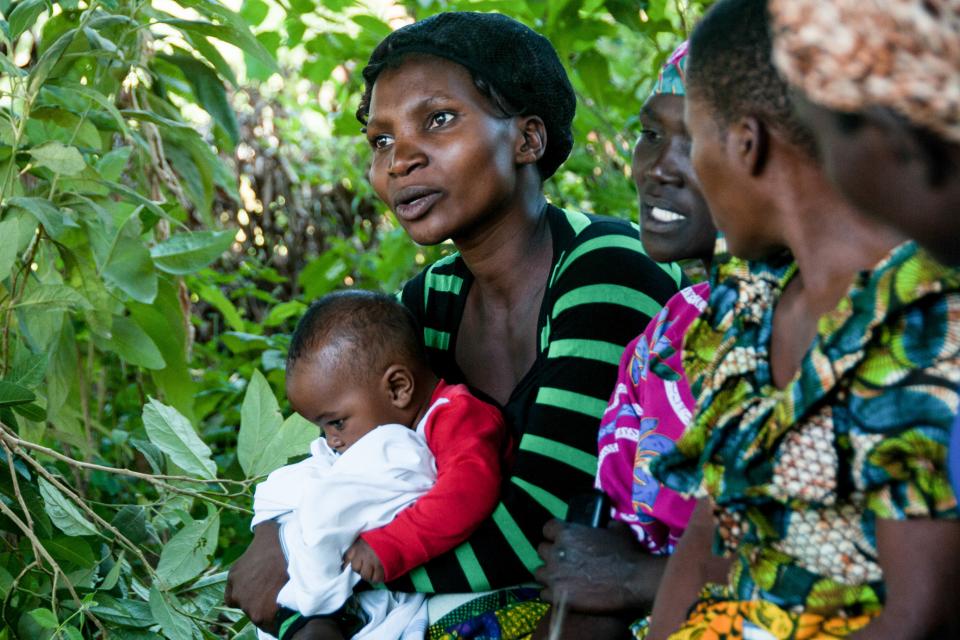Gender and climate change experts chart way forward for a gender-inclusive Africa
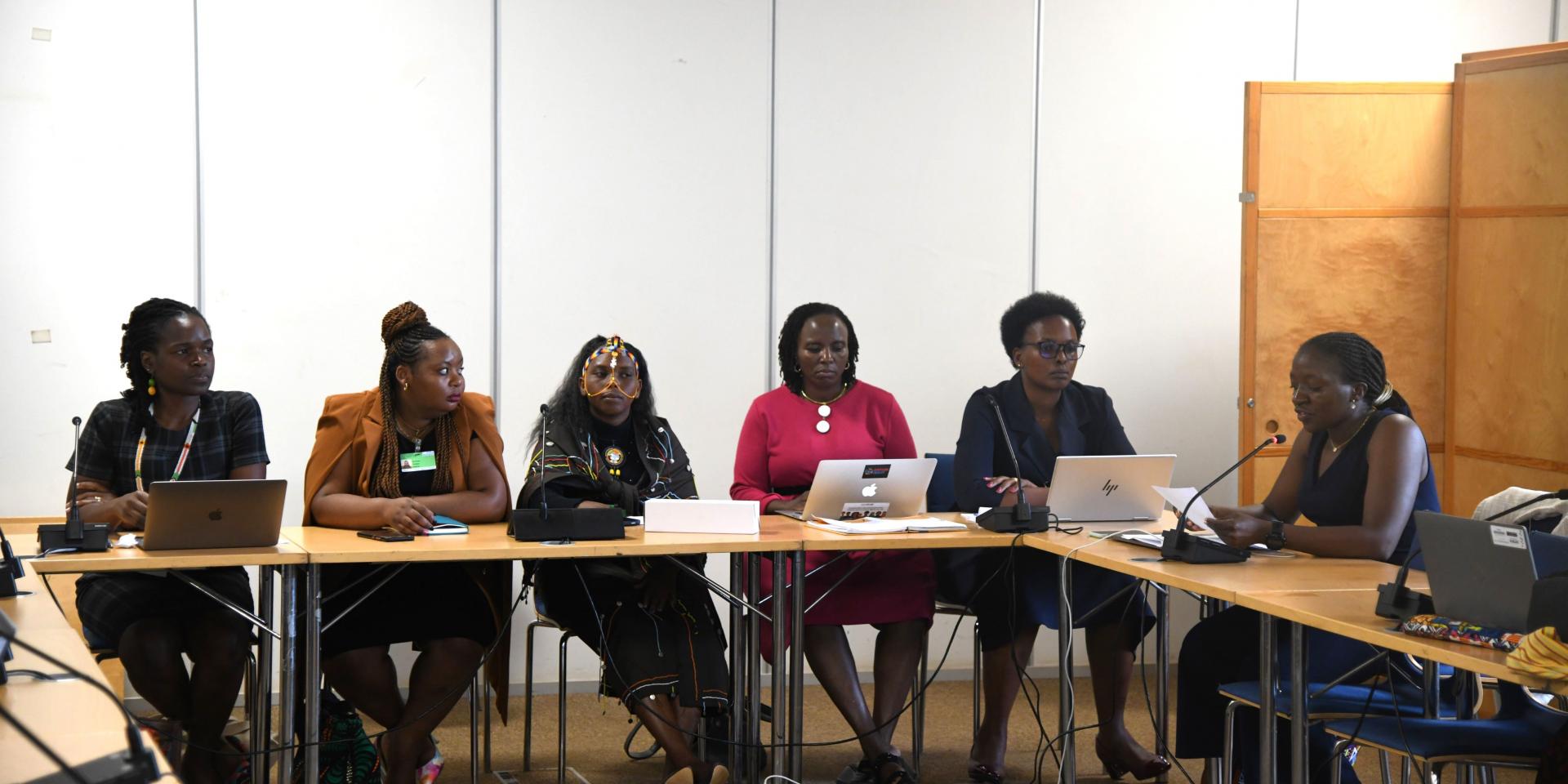 Photo: N.Ronoh/CGIAR GENDER Impact Platform
Photo: N.Ronoh/CGIAR GENDER Impact Platform
National gender and climate change focal points from Africa, working under the United Nations Framework Convention on Climate Change (UNFCCC), as well as representatives from research entities and civil society organizations met in Nairobi on April 16-18, 2024, to exchange best practices and strategies for integrating gender considerations into climate action initiatives.
CGIAR GENDER Impact Platform researchers and experts joined the discussions and shared evidence from CGIAR research-for-development programs in two parallel sessions on the care-climate nexus and on gender, climate and data.
Making the invisible visible: addressing women’s unpaid care work in a changing climate
According to the 2023 Status of Women in Agrifood Systems report by the Food and Agriculture Organisation of the UN (FAO), 66 percent of working women are employed in agri-food systems. However, women and girls shoulder an inequitable share of unpaid care work, with women in sub-Saharan Africa spending three to four times as long on such duties than men.
In climate-related disasters, women face increasing caregiving burdens, particularly rural women responsible for managing resources and households. This further exacerbates the persisting gender inequalities. For example, during droughts, women and girls endure long queues and journeys to collect water, exposing themselves to risks such as violence and harassment. With all these activities, they do not have the time to participate in training or extension activities that would allow them to adopt climate-smart agriculture (CSA) practices or exercise their social and economic rights.
Despite facing these greater risks, women demonstrate resilience in caring for their communities and planet, said Mwanahamisi Salimu Singano, Senior Global Policy Lead, Women’s Environment and Development Organization (WEDO) in the presentation she delivered to frame the care-climate nexus session.
Singano highlighted that women display leadership roles in adaptation and as the custodians of knowledge. However, they will need support systems and infrastructure that work for them, just as they must also be actively involved in decision-making processes in climate change governance.
“Supporting the role of women in care work is essential for ensuring that adaptation strategies are inclusive and responsive to the needs of all, particularly those most vulnerable to climate impacts,” said Singano.
Felister Gitonga, Gender Justice and Women Rights Lead, Oxfam International, added that a concerted effort by all the partners in the public and private sector will also be key in mitigating the increased effects of climate on women’s care burden and ensuring that the voices of communities are captured in high-level processes.
"The issue of care needs mobilization of all stakeholders. We need to support civil society to ensure we link the experiences of communities in climate crisis to high-level conversations," she stated.
CSA approaches promoted by CGIAR and its partners offer a pathway for women and girls in responding to climate-related challenges, helping them manage care burdens. CSA can assist in balancing women’s productive and reproductive roles, while also encouraging them to actively participate in community management. Vivian Atakos, CGIAR GENDER Impact Platform Engagement and Policy Lead, called for adoption of such agricultural methods and practices that will address the time-poverty gap, reduce drudgery and promote more equal gender relations.
"Research shows that whenever we are designing policies and programs that consider women's time use and care-giving responsibilities we can be successful in cutting back on women’s care burden,” said Atakos.
Some examples of innovations that save women time and labor include solar-powered drip irrigation that removes the labor-intensive nature of irrigation, while ensuring all year cultivation. Another is mechanized portable multi crop threshers used by farmers growing beans, maize and other grains in Kenya and Tanzania. For instance, when using the threshers for beans, it is possible to produce eight bags of beans in one hour with a maximum of three people operating the machine and using one liter of petrol. Such a task would previously take ten days when three people would use sticks to beat the beans and also sort the same to remove chaff and impurities. The machine not only saves women’s time, but also cuts back on the drudgery.
The speakers in this session pointed out that the lack of data and in-depth analysis of the unpaid housework that complements the agricultural activities and form a substantial part of the agricultural value chains remain a challenge. Better evidence will also be needed to take such innovative research solutions to policymakers and into the hands of women farmers who need them.
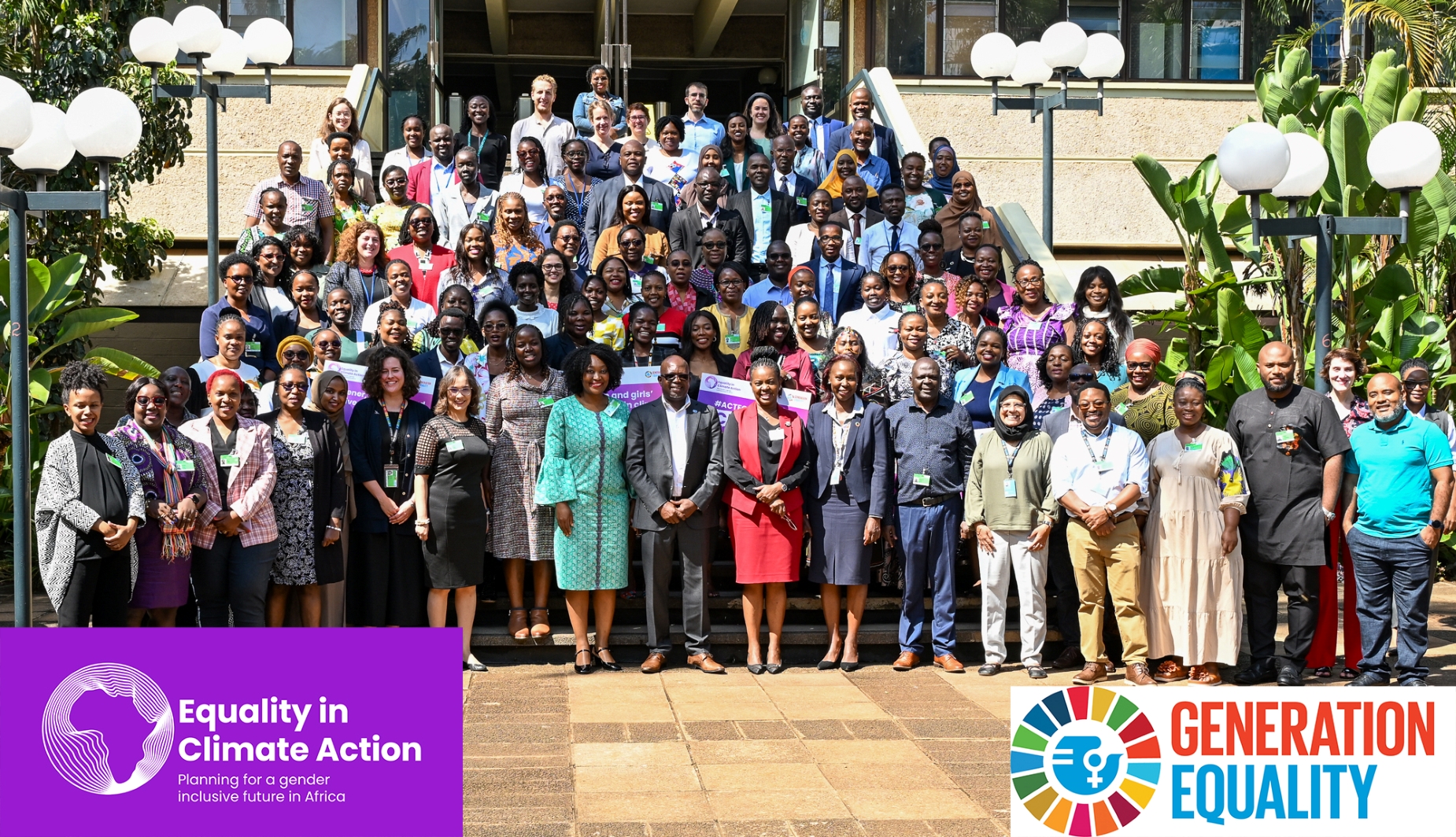
Participants at the event 'Equality in climate action: Planning for a gender inclusive future in Africa.' Photo: UN Women
Towards gender-responsive transformation: The case for robust data
In a session on gender, climate and data, experts showcased initiatives and explored challenges and opportunities in climate change data. This session essentially focused on how humanitarian settings impact the kinds of gender data and statistics researchers collect and use, as well as how circumstances change the way they collect this data.
Reinforcing the importance of data in designing current and future interventions, representatives from United Nations Environmental Program (UNEP), United Nations Development Program (UNDP), AGNES Africa, CGIAR and Development Initiatives highlighted their roles as both producers and users of gender data.
Informed climate action will not only require more climate change data, but also more gender data. This will also be critical in informing the right policies and in ensuring the right interventions are designed with investments reaching those who need them the most. There is therefore an urgent need for rigorous, gender-disaggregated data as the impacts of climate are not gender neutral; women bear the brunt of these shocks. Drawing on research across various regions, Aayushi Malhotra, Assistant Scientist with the Evidence module of the CGIAR GENDER Impact Platform, highlighted that gender-disaggregated data is a powerful tool that will advance gender equality within CSA.
“For gender-responsive transformation in agrifood systems, robust data is critical to inform interventions that equally benefit women,” stated Malhotra.
Governments play an important role in the production of this data related to climate and gender. In 2023, the CGIAR GENDER Impact Platform collaborated with the governments of Kenya, Uganda and Botswana through an AGNES-led engagement to generate a gender, climate change and agriculture hotspot analysis that would help policy makers and development agencies direct investments more strategically. Jackline Makokha, Director, Gender, at the Ministry of Gender in Kenya, pointed out that the end point of the analysis is a hotspot map of various counties in the country.
“We are generating evidence using interactive maps to ensure gender is integrated well into the national climate policies and frameworks. Identifying hotspot counties facilitates informed decision making among stakeholders, including policymakers at various levels,” explained Makokha.
This regional meeting aimed to secure a unified African position on gender and climate action, enabling negotiators to identify priorities ahead of the 60th sessions of the Subsidiary Bodies happening on June 3-13, 2024. It was co-organized by UNDP, UN Women and UNFCCC at the UN offices in Nairobi, Kenya.
